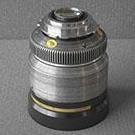Leaderboard
Popular Content
Showing content with the highest reputation on 02/22/2015 in all areas
-
Bigger formtas are totally useless, specially medium format. Don't buy any lenses for it, its totally crap, expensive and complicated. Largeformat cameras are only sold to rich people and fashion photographers who need to appear professional with big cameras. The obvious differences you can see in comparisons between different formats are only in our minds.3 points
-
From http://eddavid.tumblr.com/post/111 I was told I had to redo my W9 income tax form, because the form I filled out was the Nov 2013 form, which was expired. So I went and filled out the Dec 2014 form and noticed something new - a whole extra page of paperwork - It went from a three page document to a four page document - and that’s our government, the king of bureaucracy, in action. Bureaucracy was the big theme in this month’s Harpers, currently my favorite magazine of all time, up there with the Atlantic and the Week and the New Yorker as what I read (sorry novels, I haven’t read you guys in a while and maybe that’s another essay to write about next). In this issue, they mentioned that bureaucracy also bleeds into the arts, which is my field of work as a cinematographer. The use of credentials - like a police chief or military commander or certified doctor - a practice that exists in places like Soviet Russia have fallen into our field. The highest esteemed titles, like DGA or ASC even go after your name on a movie title (also the only art industry in the world where you put the credits on an advertisement for the product - does Colgate Toothpaste do that?) Saying “Joe Schmoe, ASC” does that make Joe Schmoe more certified than his name without that title? Does it make the film any less beautiful? At what point in the arts are you certified as an artist? At what point can you say, “yes I know what I am doing.” Some great artists do their best work before they “become” recognized. A lot of famous artists reminisce about how much easier it is for them to create good art before they are lauded, such as Jackson Pollock. Once he was called by Life Magazine, “is this the greatest artist of our generation?” his life suffered immensely. My theory is, you are an artist when you create art. So anyone is an artist, if they put pen to paper, dirty finger to keyboard. But in our filmmaking industry my whole life I have felt guilty because I didn’t go to a film schoo, I didn’t get certifiedl - I went to a liberal arts college and was an anthropology major and almost a film studies minor, as well as one point a music major. I didn’t have the training everyone seemed to be whispering that I needed. I felt so guilty, that I didn’t know how to load a film mag, that I didn’t ever sit down and learn lighting or even lenses. I had no photography background - that was my sister. I didn’t know the difference between a wide angle lens and a telephoto lens, surrounded by many people who did. I didn’t know soft light vs hard light, or the angle of lighting and how it changes on a face in shadows. I grew up shooting documentaries and prank videos on VHS-C cameras - made one in high school called “perspective” and interviews young people, older young people, and my parents about various historical issues like the Vietnam war, trying to show how our age affects how we interpret history, as well as education level, etc - bigger issues I didn’t address like race and class, because, well, I grew up in the wonderful safe bubble of Fairfield, CT. I didn’t light it - I didn’t think about the aesthetics of it at all, just what I was trying to say. But that guilt of me not having the credentials for filmmaking has haunted me for so long. I would show up on set and be so nervous that I didn’t know anything about lighting - or 35mm film or real lenses - that I would call for the wrong lens - that I was being judged by everyone. I remember about 7 years ago or so I was on a low budget tv spec spot and an electric asked me my age and I think I said I was older than I was so I could pretend that I knew what I was doing. But the more I do cinematography, the more I know that whatever unique perspective I have is an advantage. Not going to film school, coming from an anthropological and philosophical perspective gives me strength, a different way of seeing. And it is skills that can actually be learned on the job, online on forums, by talking and observing and learning from others. I have learned so much about filmmaking from a vimeo series called “Every Painting a Frame” that is just some passionate film editor named Tony Zhou doing it on his own time as from a youtube series spoofing George Lucas, and of course on set mentors like the great DP David Tumblety I shot with a few times. Everyone who brings a fresh perspective to filmmaking is so needed - we can not just have people do films all the same way. I think more and more there is a gluttony of film set behaviors that rewards the same and bureaucratic method of making “films” - traditional, boring, waiting - not just trying to find moments and capture little tiny ideas and bigger thoughts - but this route system of regimented military-like crew that does things traditional ways that people like Paul Thomas Anderson rally against - no marks - no lets go overt here instead - untraditional approaches that open up wonder again. But also that wonder is not anything without intense concentration and commitment and hard work. You can’t be lazy and successful. It’s sweat. My Puritanical work ethic was at one point rewarded vastly by my former boss and greatest mentor, Joe Baron. He runs Attitude, Inc - a post house in New York City. He taught me about perseverance - about going for perfection - “crossing the finish line” - which would sometimes be at 3am to get a piece to a level of standard he believed in. To not be mediocre, no matter what anyone else believes - to put one’s full heart into anything. To not get upset and bogged down by bureaucratic methods - to just be a part of a small group of people and be passionate. He found my strengths, and didn’t make me feel bad about my flaws, my quirks. I didn’t learn this in school, and this mentorship under him, as I assistant edited under him for two years. And his voice has been guiding me ever since, as I navigate through my adulthood. And whoever I get down because maybe I switch a lens too late or change my mind too suddenly (all artists need to be open to changes that can occur at any moment - spontaneity) - I always think of him there, watching over, making sure I’m okay.1 point
-
FULL FRAME or SUPER 35 - What do you prefer and why?
Mozim reacted to SleepyWill for a topic
I wasn't saying it was unusable, quite the opposite, but I was pointing out the drastic limitation of a shallow depth of field, thus the naievity of justifying larger sensor sizes by that alone. Unless you are a focusing savant, and they do exist, your subject will be rather stationary in the frame, especially if it is a human face and unless you like the effect of part of peoples faces/the thing that is the subject of your shot being out of focus, which personally gives me a headache, then you are going to be shooting small (depth wise) flat or very far away objects. Yes a human face side on at the end of a 200mm length filling less than a quarter of the screen is small. That's not a criticism. Your scene was gorgeous. But try watching something that makes you desperate to pick up your camera, the thing you turn to for inspiration. You will find a variety of shots, 95% of which are equally as easy to achieve on any sensor size, from iphone through to 70mm +, and you may find those other 5% of shots are in fact easier to achieve on a smaller sensor, depending on the style of the artist. FYI, my vote is for full frame, but the reason is perhaps surprising. It is the budget option. I know, I know, full frame cameras are very expensive when compared to crop frame cameras, but this is a genius of marketing over the consumers willingness to understand the product. If I want to achieve a specific look, it is almost certainly cheaper to achieve that look on a full frame sensor than a crop frame, because lens manufacturers lie when it comes to f numbers. They give the rating for the light gathered by a full frame camera, even on lenses designed only for crop frames. And because the consumer is either unwilling to do the simple maths - full open light gathered = diameter of lens opening/focal length or is willing to believe that their favourite lens manufacturer can somehow bend light into the front of their lens with magic. Thus that $1000 beautiful quality lens is not and f2.0 wide open, it's more like f4. Go look up the price for that lens that can cover a full frame, with the correct f number and see just how many hundreds of $ you can save to get a similar lens. Then work out how many lenses you need to buy before it would have been cheaper to go full frame from the beginning. With products like the A7s, it's getting close to 1 lens. The real kicker is that if you leave the crop frame system to go full frame, your lovely, overpriced lenses won't cover the sensor. So you have to hand over more $ to the scum who lied in the marketing material in the first place. It's important to note, not every company does this all the time, but every company has done this at one time or another. Of course, in the real world, you aspire to have a variety of cameras with a variety of sensor sizes and technologies. Then, no matter the look you are after, you can choose the tool that will achieve it the easiest. Because that's all sensor size is, a tool. I find internet discussions on the merits of claw hammers vs wooden mallets far more relevant and interesting, which is why my contribution to the debate is often tongue in cheek.1 point -
1 point
-
Most medium format cameras, digital backs and lenses are designed by and sold to people while they are drunk. If sober, they'd just go for aps-c and not spend £20k on digital backs. :).1 point
-

FULL FRAME or SUPER 35 - What do you prefer and why?
Nick Hughes reacted to jcs for a topic
Hey Ebrahim- I've wondered what the FF look was ever since getting a Canon 5D Mark II when it was launched (after seeing Vincent Laforet's "Reverie"). When the 5D3 was released, I bought two and sold the 5D2. When the FS700 came out, I didn't pay much attention, but when the Speedbooster was released, I bought the FS700+SB. When the GH4 was released, I didn't really consider it until I realized I could get equivalent looks with fast native lenses on m43 after learning about the math and physics of equivalence. When the A7S was released with low light performance and being able to shoot with my existing Canon and Sony lens collections, along with decent color potential (with some work), and much smaller file sizes and effort vs. 5D3 RAW, it was a good deal. After shooting with all these cameras and understanding the math, it's clear the "full frame look" is a myth, an illusion. Full frame provides affordable options, better low light, and higher potential resolution, but it's not really a significant difference on a camera like the A7S. Here's the Nikon D810 again, shooting the same scene with almost the correct settings for equivalence (aperture should have been F4 on FF shot + different ISO): Even when not set exactly right for equivalence- where is the full frame magic? A slight difference in DOF, which can be matched by setting the FF shot to F4. As leeys noted, most people won't notice the difference in this example (which again isn't equivalent). So here's the challenge: you own or have access to the A7S? Shoot a still in APS-C crop mode with good shallow DOF. Then turn APS-C mode off and use the equivalence math: multiply focal length by 1.5, aperture by 1.5, and ISO by (1.5*1.5), then shoot the scene again and post the results. If there's a difference it will be undeniable in the photo(s). Hey Simon- randomly ran across a solution for the F5: http://www.adorama.com/KABEFZEOS.html . Wasn't looking for it- google's ad technology surfaced the link! This means your T1.5/F1.4 24mm lens can look equivalent on your A7S and the F5 (very close: 1.05 crop). This challenge can be done with any full frame camera (shooting a still), even it if doesn't have a crop mode. Follow the math for equivalence, then crop the "1.5 crop mode" settings shots in post, and downscale the FF version to match resolution. You can blur the FF version to perhaps help reduce sharpness to match frames better. Other than sharpness, both cases should look equivalent. If one isn't convinced by the above photo, doing the test yourself is the best way to find the truth, whichever way it leads.1 point -

FULL FRAME or SUPER 35 - What do you prefer and why?
Caleb Genheimer reacted to Hans Punk for a topic
Easy....70mm1 point


